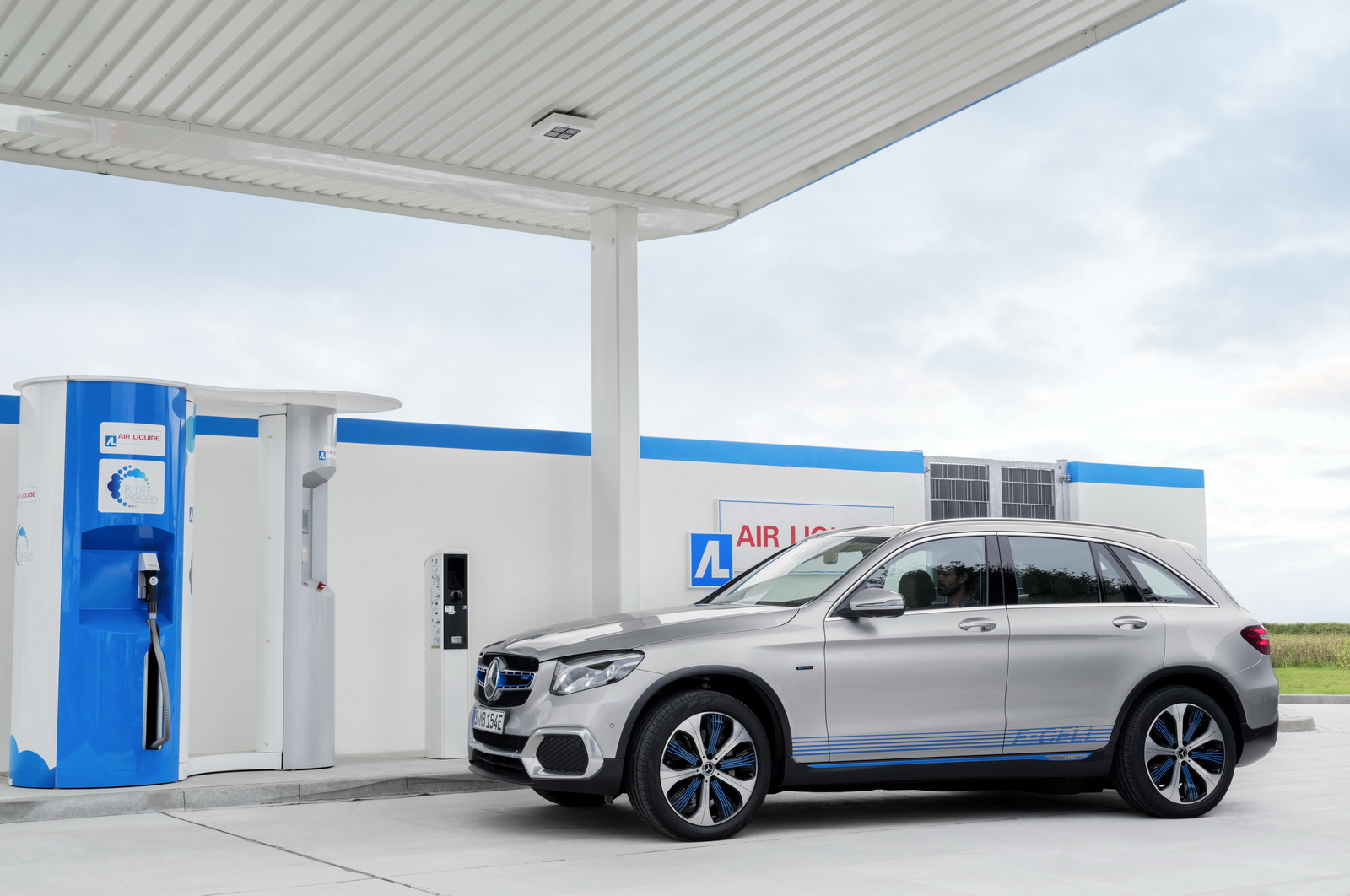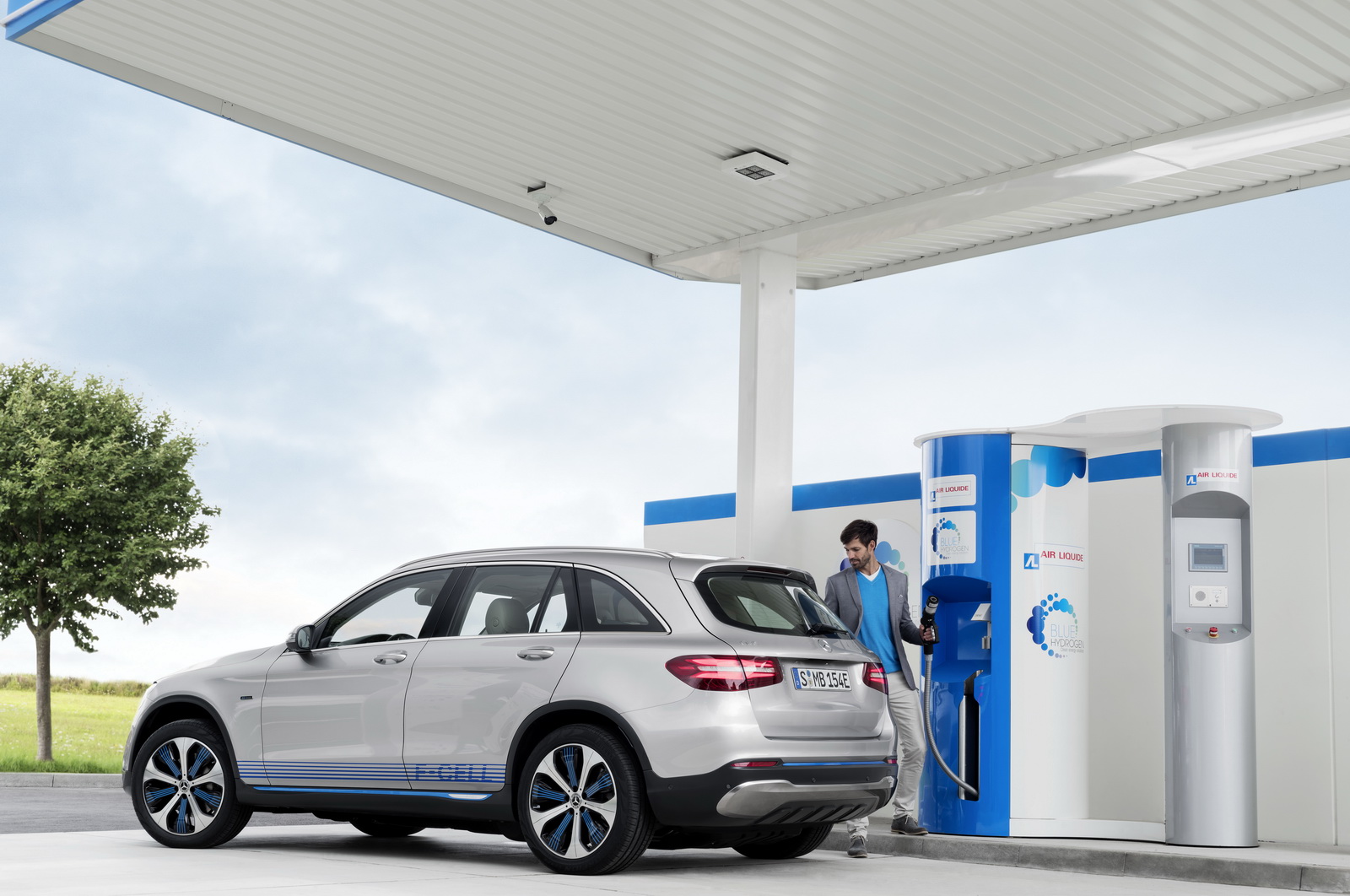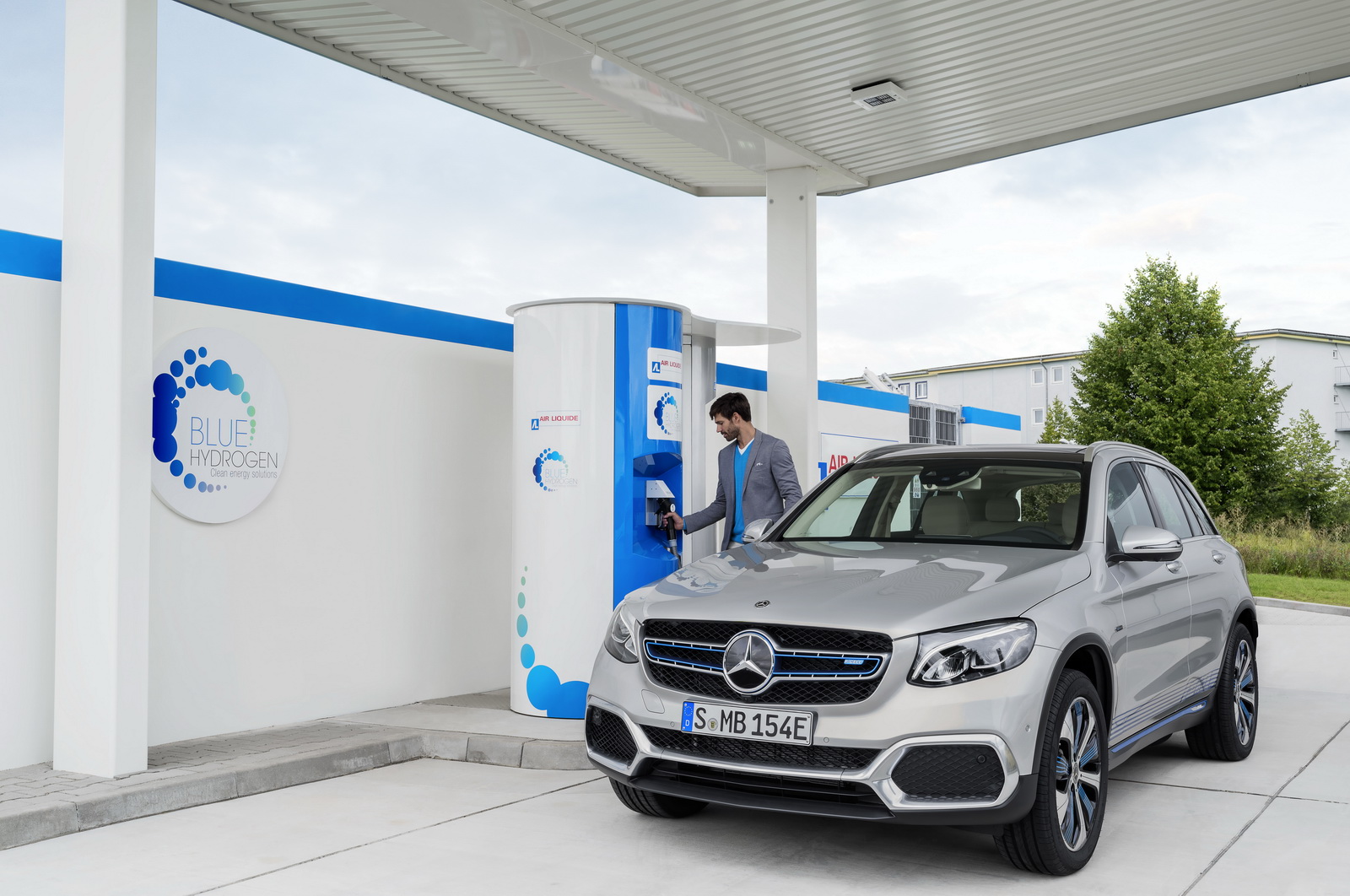Mercedes-Benz is charging forward with its plans for a range of all-electric vehicles but is remaining committed to hydrogen cars also.
Future Daimler chairman Ola Kallenius believes that Mercedes-Benz is in an ideal position to produce hydrogen vehicles on a mass scale but admits that the company must first focus on its introduction of battery-powered EVs.
“We are one of the veterans from the fuel cell business over 25 years and have seen it evolve, develop and find its place. Now we’re demonstrating with GLC F-Cell that it really works.
“On the way to 2025, what to scale first? BEV, FCV [fuel cell vehicle], or both? We’re talking hundreds of thousands, a big industrial play. We believe the scale is BEV first with the EQ family. It doesn’t make sense to scale them both at the same time,” Kallenius told Autocar.
Hydrogen vehicles remain more expensive than EVs.
To ensure that fuel-cell vehicles have a viable future, Kallenius says it is important to make hydrogen fuel cells both smaller and cheaper. According to the man that will soon take over Dieter Zetsche’s job, the best way to do this will be for Mercedes engineers to start developing and building hydrogen commercial vehicles, rather than passenger ones.
“We still believe fuel cell is part of the solution to zero-emissions mobility in the future. I’ve told our fuel cell engineers to make the unit more compact and with more performance. We’ve come a long way already, though, and I believe we are the most complete between the performance and range combination,” he said.
While some automakers are putting all their eggs into the electric vehicle basket, others are keeping their options open and also developing hydrogen technologies, just in case they prove to be popular moving forwards. Other company’s both developing EVs and FCVs include Audi, BMW, Hyundai, Kia, and Honda.






